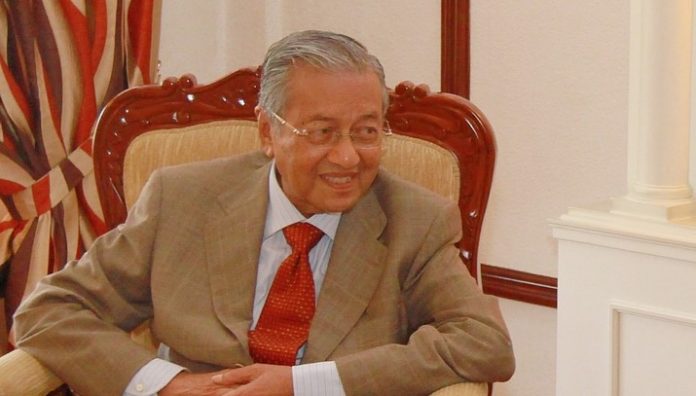Malaysia’s foreign minister has vehemently criticised Mahathir Mohamad, the 92-year-old former premier, for meeting with European Union ambassadors last week to ask them for help to ensure the upcoming elections are conducted fairly.
In a statement on January 28, Foreign Minister Anifah Aman said issues raised at the meeting affected the country’s dignity and sovereignty.
“The government will not hesitate, in defending the rights of the people and the sovereignty and dignity of the country, to take appropriately strong action on any foreign party that contravenes such norms and values as enshrined in the convention,” Anifah said in a statement.
As reported by the Reuters news agency, Mahathir is seen as the most serious challenger to Prime Minister Najib Razak in an election that must be held by August. Mahathir had served as prime minister for 22 years.
Opposition parties have long accused the United Malays National Organisation (UMNO), which has been in power since Malaysia’s independence in 1957, of election rigging and fraud. The accusations have been consistently denied by the government, reported Reuters.
According to Anifah, last week’s meeting could affect Malaysia’s efforts to defend the nation’s palm oil industry after the EU’s decision to back a ban on using palm oil to make biofuels.
Malaysia is reviewing its trade with the European Union after the ban.
“This [meeting] clearly impacts the government’s efforts to defend the country’s sovereignty and image, including the government’s efforts to defend the nation’s palm oil industry,” Anifah said in the statement.
An EU Spokesperson told European Interest: “Yes, EU Heads of Mission in Kuala Lumpur met with leaders of Malaysia’s opposition on 25 January. They also have meetings with politicians from the governing coalition. It is part of the normal work of diplomats to meet politicians and political parties in the countries they are posted. This is in line with international diplomatic practice as per the provisions of the Vienna Convention and such meetings do not confer endorsement of any candidate or party.”

